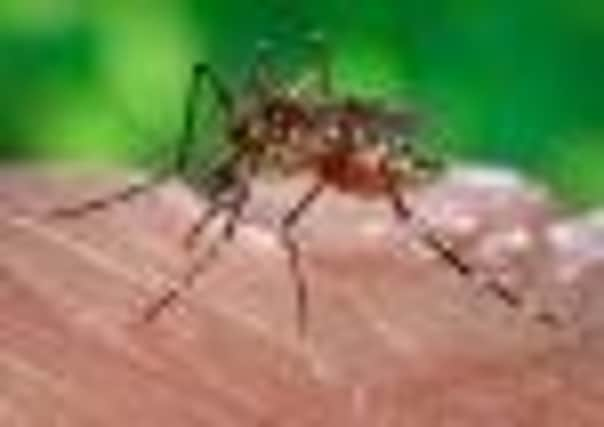In a flap over GM mosquito plan to fight Dengue fever


Oxfordshire-based Oxitec aims to release the insects in a bid to control a possible outbreak of the mosquito-borne Dengue fever at the request of the Florida Keys Mosquito Control District.
However, 100,000 Floridans have signed an online petition organised by a Key West mother in a bid to stop the planned released of thousands of GM mozzies.
Advertisement
Hide AdAdvertisement
Hide AdPetition organiser and mother-of-three Mila de Mier said: “As a community we’ve already said we don’t want these mosquitoes in our backyards, but Oxitec isn’t listening.”
Oxitec would let loose its genetically modified male mosquitoes in the Keys so they would breed with wild females, and they would carry an engineered gene that would ultimately kill the females and their larvae.
Only female mosquitoes bite or are equipped with the mouth-parts for biting, which transmits diseases such as malaria and Dengue fever.
“Florida Keys had Dengue for the first time in many, many years in 2009,” said Hadyn Parry, Oxitec’s chief executive officer, “So they upped their spend hugely in terms of chemical applications, inspections and manpower but despite best efforts the next year in 2010 they had double the number of local cases.”
Mr Parry stressed that Oxitec was invited by Florida authorities to carry out the mosquito release. The Florida Keys Mosquito Control District employs 97 people, 71 full-time, to monitor and control mosquitoes.
“To get Dengue in an area you need the mosquito and the virus,” Mr Parry said. “They have the mosquito and cannot get rid of it so each year they are ‘at risk’. But if visitors arrive carrying Dengue in their bloodstream then they could have an epidemic.”
Key West has about three million visitors a year – and a large number are from the Caribbean where there is a lot of Dengue, with a big outbreak in the Bahamas last year.
Dengue occurs in more than 100 countries, and the World Health Organisation (Who) estimates around 100 million people get the disease annually, which often causes its victims to have contortions due to intense joint and muscle pain. Around half-a-million people are hospitalised each year, of whom around 12,500 die. A Who spokesman said: “Not only is the number of cases increasing as the disease spreads to new areas, but explosive outbreaks are occurring.”
Advertisement
Hide AdAdvertisement
Hide AdBut Ms de Mier’s petition states: “Nearly all experiments with genetically-modified crops have eventually resulted in unintended consequences: super weeds more resistant to herbicides, mutated and resistant insects and collateral damage to ecosystems.
“Why would we not expect GM insects, especially those that bite humans, to have similar unintended negative consequences?”
Dr James Logan, a lecturer in medical entomology at the London School of Hygiene & Tropical Medicine, said genetic modification of mosquitoes that carry Dengue fever was an important and exciting area of research.
He said: “It is important to find new ways to control these mosquitoes as Dengue is a growing problem in the tropics and is now becoming a threat to countries much closer to home. There is no preventative medicine against Dengue and the best way to stop it is to stop the mosquitoes that spread it.”